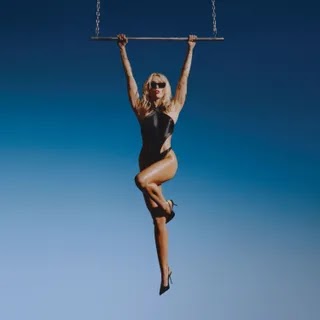Behind its carefree title, Miley Cyrus’ eighth album is an edgeless and synthetic collection of disco-pop bummer jams.
For years, each new album signaled the pronouncement of a new, more mature Miley Cyrus, and a host of new visual metaphors for said maturity: an asymmetrical haircut, an acoustic guitar, a branded condom, another asymmetrical haircut. But she has remained one of pop’s most endearingly guileless songwriters. On songs like “Malibu” and “High” she sings about true love with total innocence; on 2020’s “Bad Karma” and “Night Crawling,” collaborations with Joan Jett and Billy Idol, respectively, she took on the guise of rock stardom, affecting a swagger with the enthusiasm of a superfan. Taylor Swift shed her wide-eyed sense of wonderment somewhere around Reputation; Cyrus never did, giving her music a curious, appealing openness that stands out in the contemporary pop landscape.
On Endless Summer Vacation, Cyrus’ eighth album, that changes. Its airy, mostly unfussy pop-rock production is streaked with the pink and red of a summer sunset; emotionally, it carries the mottled purple tint of a bruise. Early on she howls a backhanded apology to an ex: “I’m sorry that you’re jaded.” By the time the record’s played through—after she sings about her own callousness and her inability to settle down, and wonders “Am I stranded on an island/Or have I landed in paradise?”—it seems like she might be singing to herself. Cyrus is only 30, but Endless Summer Vacation is marked by a blunt cynicism that seems like a product of both a recent divorce and a lifetime seeing her own image warped and criticized by the media.
Led by the hammy self-love anthem “Flowers”—a chugging daytime disco song that aims for “I Will Survive” but lands more like “I Will Survive?”—Endless Summer Vacation has been sold as Cyrus’ stylish moving-on record, an unbothered counterpart to its snarky predecessor Plastic Hearts. But it is more interesting than a simple statement of self-confidence. On most of these songs, Cyrus is regretful, even mournful: “Rose Colored Lenses,” seemingly about a moment of post-coital bliss, wallows in the realization that such peace can never really last. “You,” a gorgeous soul ballad that captures all the grit and tension from Cyrus’ ragged voice, counters devotional lyrics with a chorus that laments a breakup as a foregone conclusion: “I am not made for no horsey and carriage/You know I’m savage.” On streaming, Endless Summer Vacation is packaged with a demo version of “Flowers,” and although it is a demo in name only—it is as taut and shellacked as the final version, just quieter—it’s actually a neat bookend, making Cyrus’ lyrics sound yearning and contrite.
Cyrus has never really made a great front-to-back album—2013’s Bangerz, weirdly, is probably most listenable the whole way through—and, with Endless Summer Vacation, “no skips” remains out of reach. A run of understated early tracks, largely produced by Harry’s House collaborators Kid Harpoon and Tyler Johnson, is interrupted by the interminable Harmony Korine co-write “Handstand,” the kind of grooveless synth dirge that helped 2015’s Flaming Lips collaboration Miley Cyrus and Her Dead Petz sink like a stone. “Handstand” is built around a heavy-handed boat metaphor that never seems to go anywhere, and confoundingly introduces a character called Big Twitchy, a constant presence in Korine’s paintings. It feels as if, after exercising the kind of restraint that’s rare across her catalog, Cyrus finally let herself slip back into mindless excess.
Cyrus has said Endless Summer Vacation is loosely divided into “AM” and “PM” sections, and it’s the nighttime songs, roughly beginning with “Handstand,” that grate. “Wildcard” unsuccessfully retreads the “I’m damaged” regretfulness of “You” with less panache; “Muddy Feet,” a leaden collaboration with Sia, aims for tough talk and mostly lands at awkward. A decade on, Cyrus has still not found an appealing way to sing the word “I’ma,” and the song describes a cheating partner with a maddening combination of vagueness and ultra-specificity.
Indeed, a search for any of these songs brings up dozens of tabloid articles purporting to explain how they relate to Cyrus’ personal life. Thankfully, most of the album doesn’t fuel the impulse to speculate. On its best songs, such as the vampy and lascivious “River,” Cyrus effectively showcases who she is at this point in her career: Mature but still messy, not above a theatrical turn of phrase (“You’re pourin’ down, baby, drown me out”) and, very occasionally, still in tune with the big-hearted optimism that characterized her earlier music. “You could be the one, have the honor of my babies,” she sings. “Hope they have your eyes and that crooked smile.” Thrown into the middle of a horned-up dance jam, it comes as a surprise. A little like Endless Summer Vacation—which is not the sundazed party record that was promised but an exploration of how it feels when the party’s over.



0 comments:
Post a Comment